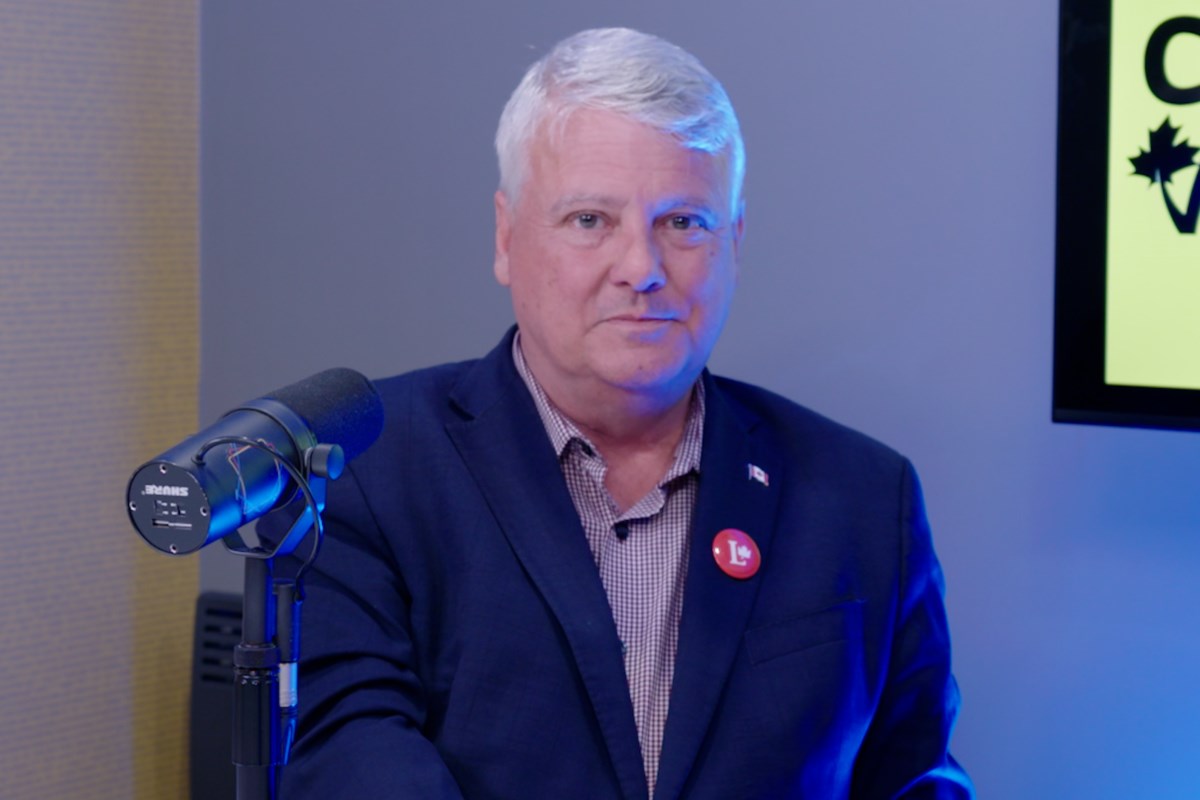Pope Francis’ 3 earthquake documents and how they roiled the church

(OSV News) — Throughout his 12-year papacy, Pope Francis released four encyclicals, six apostolic exhortations and numerous other papal documents — all key for elevating issues in the church and sharing his decisions, encouragement, hopes and concerns. While some documents such as “Evangelii Gaudium” (“The Joy of the Gospel”) in 2013 and “Laudato Si’, on Care for Our Common Home” in 2015 were watershed moments for Pope Francis’ priorities, there were three other documents from his papacy that truly roiled the church: “Amoris Laetitia,” “Traditionis Custodes,” and “Fiducia Supplicans.” “Amoris Laetitia” Quick overview: “Amoris Laetitia,” or “The Joy of Love,” was a lengthy post-synodal apostolic exhortation Pope Francis promulgated following back-to-back synods of bishops on the family in 2014 and 2015. Subtitled “On Love in the Family,” the March 2016 document explored the contemporary challenges facing families and promoted a renewed awareness of the family’s importance. The controversy: While some critics brabbled over other aspects of the document, the major rub was that it appeared to open the door for someone divorced and civilly remarried without a declaration of nullity, commonly known as an annulment, to be admitted to Communion. Many interpreted this as a compromise on the church’s teaching on marriage, since a marriage is presumed to be valid unless a church tribunal declares it invalid. Without a declaration of nullity, the person risks committing the grave sin of adultery in a new relationship — unless they are living as brother and sister — and may cause scandal to others while receiving Jesus Christ in the Eucharist unworthily. The background: “Amoris Laetitia” aimed to approach the subject of marriage, the Holy See’s press office said, with the “humility of realism” that avoids presenting “a far too abstract and almost artificial theological ideal of marriage, far removed from the concrete situations and practical possibilities of real families.” The controversy: In the document’s eighth chapter, Pope Francis advocated for drawing couples in “irregular” situations into the life of the church, and said that room should be allowed for personal and pastoral discernment while still helping those couples understand and appreciate church teaching as it applied to their situations. He said that in some circumstances, there may be “mitigating factors” affecting the situation’s gravity of sin, and thus such couples cannot always be presumed to be “living in a state of mortal sin and … deprived of sanctifying grace.” Pastors should help couples “grow in the life of grace and charity,” the document said, adding in a footnote that “In certain cases, this can include the help of the sacraments.” Some interpreted the document as saying that the church had changed its stance and now was allowing most or all Catholics who were divorced and remarried without a declaration of nullity to receive the Eucharist. Others understood the narrow circumstances the document described, but questioned whether that allowance amounted to a change in church teaching. The fallout: The full nature of the pushback was realized in a list of five “dubia,” Latin for “questions,” sent to Pope Francis in September 2016 by four cardinals — including American Cardinal Raymond L. Burke, former archbishop of St. Louis and prefect emeritus of the Vatican’s Apostolic Signatura, the church’s highest judicial authority — that aimed, they said, to clarify “contrasting interpretations” of Chapter 8’s most controversial paragraphs. When the dubia went unanswered, the cardinals went public with their effort. Pope Francis never responded directly to that set of dubia, although related questions posed in dubia requests from other cardinals received a response in 2023 signed both by Pope Francis and the head of the Dicastery for the Doctrine of the Faith, Cardinal Víctor Manuel Fernández. According to that response, people who are divorced and civilly remarried can normally access the sacraments if they refrain from sexual relations, but Pope Francis also recognizes in some cases, especially where obtaining an annulment is impossible, that “a process of discernment may also be possible which stimulates or renews the personal encounter with Jesus Christ, also in the sacraments.” The response recommended that bishops’ conferences each develop criteria for implementing “Amoris” with deference to each bishop’s authority in his own diocese. “Traditionis Custodes” Quick overview: In July 2021, Pope Francis issued “Traditionis Custodes,” a decree that limited the celebration of Mass according to the 1962 Roman Missal, the book containing the prayers and rubrics for the Mass used prior to the Second Vatican Council. The controversy: Many bishops, priests and lay Catholics accustomed to celebrating what had become known as the “traditional Latin Mass” felt wounded by the decision, some to the point of discussing the possibility of schism. The background: Use of the 1962 Missal for celebrating Mass gave way to the promulgation of a new Roman Missal in 1969, and fully published in 1970, that was, for the first time, intended to be translated from Latin for the celebration of Mass in vernacular languages. However, in the 1980s, St. John Paul II allowed the older missal to be used on a limited basis, and in 2007, Pope Benedict XVI widely expanded that access. His document “Summorum Pontificum” gave pastors discretion over whether to offer the Mass and said the faithful had a right to ask for it. By the time Pope Francis took office, the “traditional Latin Mass” had appeared to be on the rise, especially in the United States. In 2020, the then-Congregation for the Doctrine of the Faith “carried out a detailed consultation of the bishops” on the outcomes of “Summorum Pontificum,” which Pope Francis said in “Traditionis” informed his decision to limit it. In a letter accompanying “Traditionis,” Pope Francis explained that his goal was church unity, and he was concerned about some pre-conciliar Mass adherents believing the 1962 Missal contained superior texts for worship and that the Second Vatican Council (1962-1965), which called for a revision to the Mass texts, was a failure or even illegitimate. The document prohibited the regular celebration of the pre-conciliar Mass in parishes and also prohibited the erection of new, non-territorial parishes dedicated to use of the traditional Latin Mass; required priests who had already been celebrating the traditional Latin Mass, and wished to continue, to seek their bishop’s permission; required priests who were ordained after “Traditionis” and wished to celebrate the traditional Latin Mass to submit a request to his bishop, who then had to seek permission of the Holy See, and discouraged the establishment of “new groups” of Catholics wishing to celebrate the pre-conciliar Mass. The fallout: Some Catholics have interpreted “Traditionis” as vindictive and cite it as evidence that Pope Francis was dismissive of liturgically and even socially conservative Catholics — especially at a time when the pope was calling for “a listening church” that embraced synodality and “walking with” people on the peripheries, and when he had made overtures toward greater inclusion of other Catholic minorities, such as those who identify as LGBTQ+. Other Catholics applauded the document, with some appreciating its recognition of what they saw as a divisive subculture stemming from traditional Latin Mass communities. In the U.S., bishops have applied “Traditionis Custodes” somewhat unevenly, both in policy and timeliness, with Cardinal Blase J. Cupich of Chicago among the first to establish concrete directives for his archdiocese on Christmas Day in 2021, and Archbishop Edward J. Weisenburger of Detroit just announcing in April 2025 how the document will be implemented in the archdiocese where he was installed March 18. Many Catholics who prefer the pre-conciliar Mass harbor hope that the next pope will “reform the reform” and lift the restrictions “Traditionis” placed on their use of the 1962 missal for Mass. “Fiducia Supplicans” Quick overview: “Fiducia Supplicans,” subtitled “On the Pastoral Meaning of Blessings,” was issued in December 2023 not by Pope Francis, but by DDF prefect Cardinal Fernández. It said the church could extend God’s grace via blessings of couples in “irregular situations,” such as same-sex partnership or heterosexual non-marital cohabitation. The controversy: While the document affirmed the church’s perennial teaching on marriage, as well as the immorality of extramarital sexual relations, many Catholics said they struggled to understand a distinction between blessing couples and blessing their union, with some suggesting it was a distinction without a difference. Meanwhile, some prominent advocacy groups for LGBTQ+ inclusion in the church celebrated “Fiducia” as a major, even revolutionary, development. Some Catholic advocates who identify as LGBTQ+ suggested that it did not go far enough. The background: In an introductory note with “Fiducia,” Cardinal Fernández said the document addressed questions that had come before the DDF, including formal “dubia” (likely those related to the Synod on Synodality then underway). The cardinal also noted in the introduction that the pope had approved the text “with his signature.” The fallout: Many mainstream news headlines failed to convey key distinctions within the document and proclaimed it allowed the blessings of same-sex unions. That led some to question whether the church had altered its teaching on marriage, although the document stated it had not. As the document was more widely read, many clergy, theologians and church commentators around the world wrestled with the question of whether the church could recognize two people living outside the church’s norms — and perhaps in serious sin — as a “couple” and bless them together, without somehow sanctioning, or appearing to sanction, their relationship. While “Fiducia” anticipated and tried to thread the needle on that question, many people were left unsatisfied or confused, and some rejected the document outright. Others questioned its release six weeks after the end of the first monthlong meeting of the Synod on Synodality, which included among its topics ministry to LGBTQ-identifying Catholics, and argued that the top-down decision seemed to defy the spirit of synodality. On Jan. 4, 2024, the DDF issued a press release to both clarify “Fiducia” and recommend “a full and calm reading … so as to better understand its meaning and purpose.” It also said that bishops should not deny their priests the possibility of discerning and imparting blessings, but that the blessings should last only “a few seconds” and should be given “without an approved ritual and without a book of blessings.” The document, however, revealed a deep divide between the world’s bishops. While some — such as prominent bishops in Germany, Argentina and India — welcomed the document outright, many others aimed to clarify or offer further teaching. Still others, including those in Ukraine, Brazil and Kazakhstan, openly refused to implement it in their dioceses. Bishops’ conferences across Africa determined that same-sex blessings would not be carried out in the continent. The document also appeared to sour some ecumenical relationships. A year after the document was issued, Catholic leaders, including those involved in ministry to Catholics identifying as LGBTQ+, said they had not seen an uptick in Catholic same-sex couples seeking blessings. However, “Fiducia” may have prompted greater reflection among church leaders on what ministry to Catholics identifying as LGBTQ+, including those in same-sex partnerships, should look like, whether or not they agree with the approach “Fiducia” suggests. Maria Wiering is senior writer for OSV News.



















